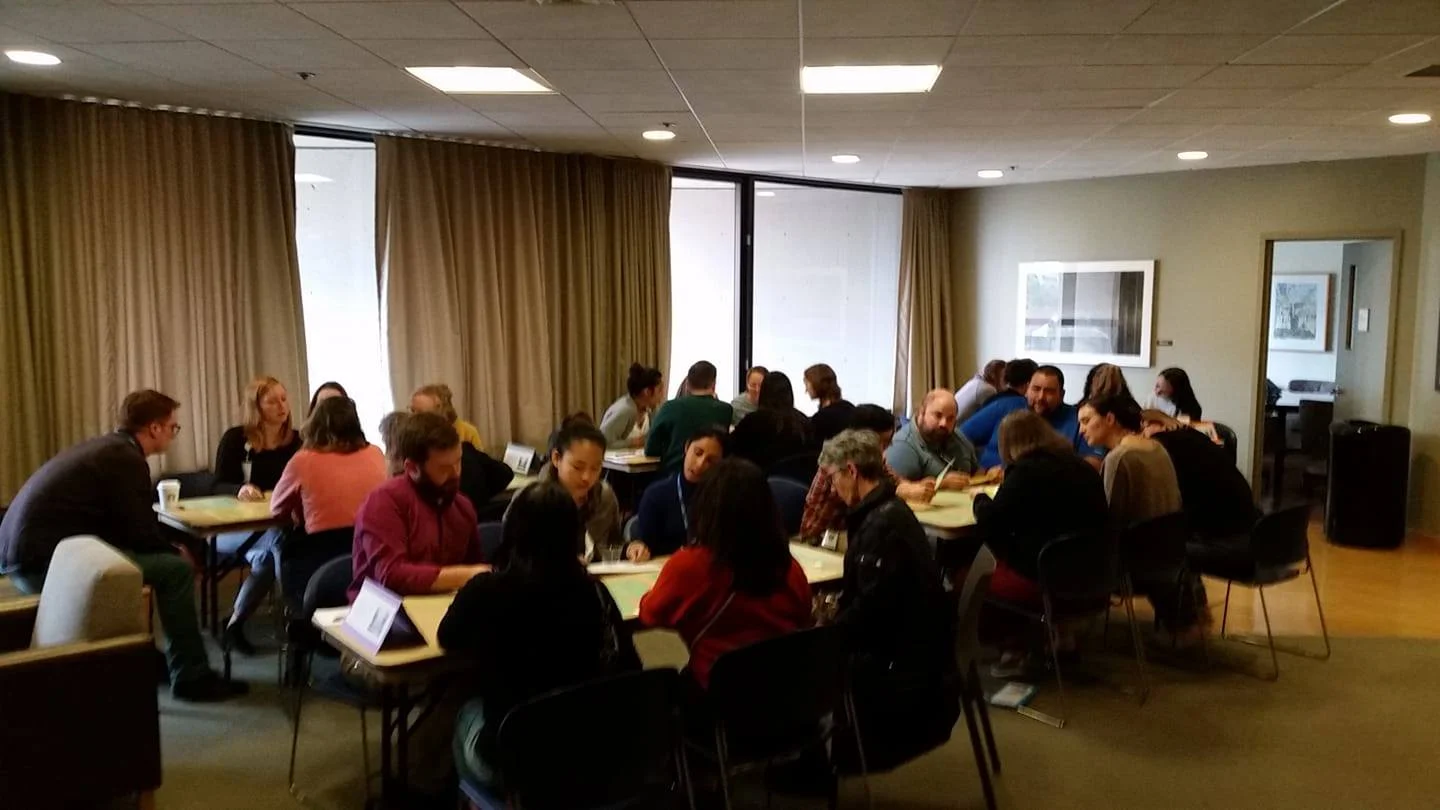Capacity Building
Consistent development of intentionally anti-racist practices are paramount to organizational transformation.
Racial Equity Consultants bring extensive expertise and experience in developing systems of support for Equity Teams:
Facilitating the creation of potential race and equity outcomes, goals and strategies
Developing curriculum for Race Equity Team work
Providing guidance, resources, modeling, and support to the Equity Team
Mentoring and coaching individuals within the Team
Solving problems and conflict management
Supporting the Team to lead an organizational assessment process
Analyzing policies and practices within the organization
Training
Through research-based, adult learning techniques, we create meaningful experiences for leaders and staff that explore history, systemic oppression and personal awareness. Training increases staff awareness, knowledge and communication in an effort to move towards positive cross-cultural communication, which challenges and changes institutional racial inequities. Learning to talk about race and racism constructively within the organization will give Staff and Board tools and practices for consistently interrupting and counteracting institutional racism and racial bias.
REC recognizes that sustainable racial equity is most successful when organizational members drive the change process. To ensure the Phinney Neighborhood Association’s internal and external culture are anti-racist, equitable and inclusive, REC will support the building of internal capacity. Building this capacity involves widespread training, developing leaders and creating supportive infrastructure. Through training, staff develop awareness of their role in challenging institutional racism and addressing white privilege. Staff also learn to interrupt normative practices and reimagine their work and institution in a way that produces equitable outcomes, facilitating sustainable change within the institution and shifting the organization’s culture.
REC stands on four key elements to accomplish this work:
Awareness – expanding an understanding of our own biases, assumptions and racialized behaviors.
Knowledge – Developing knowledge of institutional racism, historical oppression and the experiences of marginalized groups.
Skills – building capacity to engage in cross-cultural communication and the ability to interrupt white supremacy.
Advocacy – elevating the voices and concerns of traditionally marginalized communities.
We recognize that organizations are most effective in challenging historical oppression when they promote courageous leadership, intentional commitment to racial equity, and authentic engagement with the community.
Our training approach rests on the foundational understanding that:
Race impacts opportunity,
The current racialized outcomes are not our fault, but they are our responsibility,
Deep racial inequities persist due to historical institutional and systemic practices still at play,
Increasing awareness of oneself and the environment is a strategy for change,
Impact and outcome hold a greater significance than intent,
Well intentioned people often unknowingly and unintentionally contribute to racialized outcomes and oppressive practices,
Shaming and blaming are not effective tools for building equity,
It is necessary and important to experience discomfort in order to advance learning,
Challenging racism and white privilege is everyone’s work,
There are no quick fixes. It takes sustained effort to change institutional and systemic outcomes.
Through research-based, adult learning techniques, we create meaningful experiences for leaders and staff that explore history, systemic oppression and personal awareness. REC recognizes that sustainable equity is most successful when organizational members drive the change process. As social justice educators experienced in culturally responsive/anti-racist practices, we facilitate cross-racial conversations centered in community experience with targeted attention on impacts and needs. We are skilled in guiding conversations and activities focused on institutional racism, historical oppression, community impacts, intersectionality, power, white dominant culture, implicit bias, micro-aggressions, and more. We have facilitated discussions with elementary and high schools, community colleges, social services agencies, legal organizations, government agencies, community groups, families and students.



